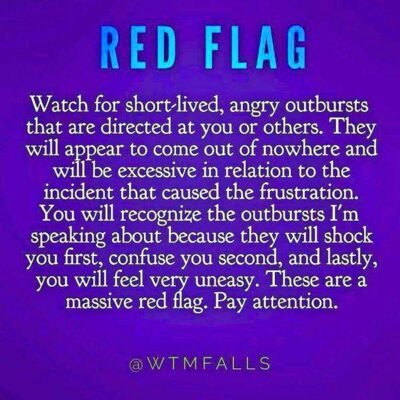She sat in her parked car for 32 minutes before going inside. She wasn't avoiding anyone—he wasn't even home. She just… didn’t want to walk into her
 She sat in her parked car for 32 minutes before going inside.
She sat in her parked car for 32 minutes before going inside.
She wasn’t avoiding anyone—he wasn’t even home.
She just… didn’t want to walk into her own place. And she couldn’t figure out why.
His words never hit like fists. Not exactly. But they landed just the same.
She’d hear things like:
“You’re so sensitive. Other women could handle me.”
“I know I said I’d help with bills this time, but you make more money. It’s just math.”
“You make things so hard. I can’t even talk to you anymore.”
He didn’t scream. He sighed.
He didn’t hit. He withheld.
He didn’t cheat (as far as she knew). But he punished her silence with more silence.
She had googled it all.
“Is it abuse if there’s no hitting?”
“Toxic vs. abusive relationships: how do I know?”
🔍 The Confusing Overlap
Let’s be honest: these terms—toxic and abusive—get thrown around a lot. But there is a difference.
A toxic relationship usually means both people are contributing harmful behaviors—poor communication, emotional immaturity, or patterns that feed off each other.
An abusive relationship, by contrast, involves one person using patterns of control, fear, and power over the other. Abuse isn’t about mutual dysfunction. It’s about intentional domination—often hidden beneath charm, silence, or manipulation.
“Abuse is not a disagreement. It’s a pattern of behavior used to gain and maintain power and control over another person.”
— National Domestic Violence Hotline [1]
🧠 Signs It’s Not Just “Toxic”—It’s Abuse
Abuse can show up without bruises. That’s what makes it so slippery. Survivors may not even call it abuse until years later.
Some red flags that lean more toward abuse than toxicity:
You feel fear or anxiety when they enter the room.
You second-guess yourself constantly to avoid their disapproval.
They control money, access, friendships, or your body.
They apologize, but nothing changes—just gets more subtle.
You feel like you’ve become a shadow of who you used to be.
🛑 Abuse Hijacks the Soul
Toxic behavior is hard. It can hurt. It can wear down a relationship. But abuse steals your autonomy. It can make you question reality.
And that’s where she found herself.
Sitting in the car. Remembering a version of herself that used to laugh loudly. That used to say “no” without panic. That used to walk in the front door without feeling like she was bracing for something.
She realized something important:
You don’t need bruises to say “This is hurting me.”
You don’t need proof to say “I deserve peace.”
🕊️ For the Woman Wondering
If you’re trying to figure it out:
Pay attention to how your body reacts around them.
Ask: Do I feel free, or do I feel like I’m always trying not to cause a scene?
Understand that abuse often hides in the in-between spaces—silence, control masked as protection, insults disguised as jokes.
You don’t have to explain it perfectly. You just have to trust what your spirit keeps whispering:
“This isn’t love.”